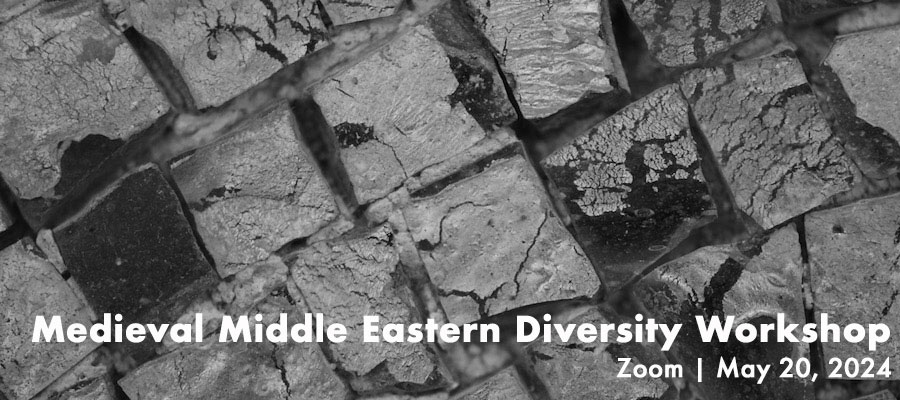Medieval Middle Eastern Diversity Workshop, Zoom, May 20, 2024
The medieval Middle East was the most ethnically, religiously, and linguistically diverse literate society in the premodern world. Due to the institutional infrastructure of academia, however, the scholarly study of our field encourages specialization in one or another ethnic, religious, or linguistic group rather than examining medieval people’s mutuality and distinctions as lived experiences of social history. Recognition of various interrelated forms of diversity is increasingly important in many fields of history, but apart from several important works on the early Islamic period, such recognition is only starting to inform the study of the medieval Middle East after 750 CE.
This online workshop invites scholars to discuss diversity, with any thematic focus, within the temporal scope of the “medieval” period (roughly 600-1500) and the Middle Eastern region. Any scale of work, from broad theoretical inquiries to granular microhistorical analyses, is welcome. Possible themes include (but are not limited to):
- Religious diversity (e.g. apologetics/polemics, conversion/Islamization, boundary articulation/crossing, religious practice and ritual experts)
- Intellectual diversity (e.g. competing ideas, education, circulation of books)
- Ethnic diversity (e.g. people movements, medieval conceptions of groups)
- Linguistic diversity (e.g. translations, diglossia and multilingualism)
- Economic diversity (e.g. class stratifications, social mobility, guilds and professions, means of production)
- Intersections of diversity (e.g. gender and religion, politics and ethnicity, law and race)
- Limits of diversity (e.g. non-diverse spaces and contexts)
The workshop is organized by Thomas A. Carlson (Oklahoma State University) and Reyhan Durmaz (University of Pennsylvania).
